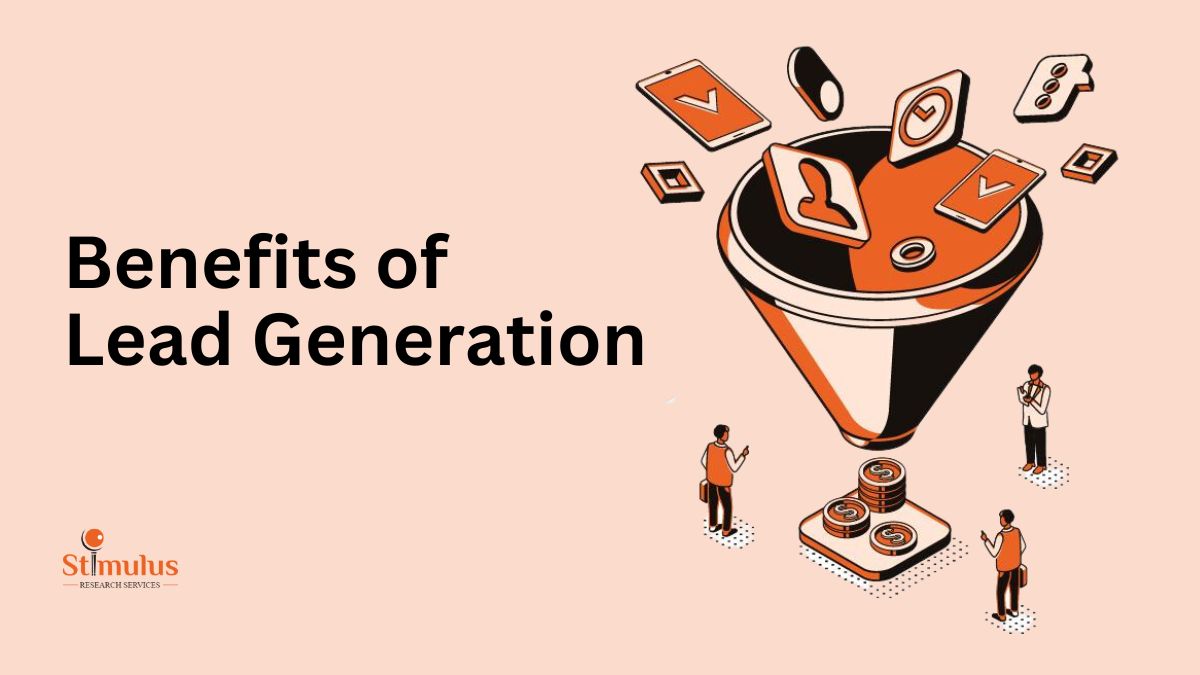As we are transitioning towards digitally dominant approaches to Sales & Marketing, the concept of “lead generation” has become essential to outperform in the market. Lead Generation is a cycle of identifying and cultivating potential customers for a business’s products or services. A potential “lead” is a business or individual who is interested in your product or services.
What is Lead Generation?
Lead Generation is an essential part of businesses as it enables them in identifying potential customers who are likely to develop an interest in their products or services and nurture those leads until they are ready to buy their services or products. This process usually involves a series of tactics, such as social media marketing, Search Engine Optimization to bring organic traffic, content marketing, targeted advertising, and email marketing.
Why is Lead Generation Important for Business?
Lead generation is the process of identifying and attracting potential customers. It is one of the most important aspects of any business, as it is the foundation of a healthy sales pipeline. Without a steady stream of leads, businesses will struggle to grow and succeed.
There are many reasons why lead generation is so important for businesses. Here are just a few:
- It helps businesses reach their target audience. Lead generation strategies allow businesses to identify and target the people who are most likely to be interested in their products or services. This saves time and resources, and ensures that marketing and sales efforts are focused on the right people.
- It increases brand awareness. When businesses generate leads, they are putting their brand in front of potential customers. This helps to increase brand awareness and build trust.
- It drives sales. The ultimate goal of lead generation is to convert leads into paying customers. By generating a steady stream of leads, businesses can ensure that they have a pipeline of potential customers who are ready to buy.
- It helps businesses grow. Lead generation is essential for businesses that want to grow. By increasing brand awareness, generating leads, and driving sales, businesses can expand their customer base and increase their revenue.
Purpose of Lead Generation:

- To identify: the foremost goal of lead generation is to identify potential customers who are interested in a business’s products or services. This is usually done through advertising, social media marketing, email marketing and content marketing. After identifying potential customers, businesses run targeted marketing campaigns which yield better sales results.
- To create awareness: Lead generation is not only limited to identifying potential customers and creating better sales opportunities but it also helps in increasing brand awareness and promoting a company’s product or services to a wider audience.
- To ensure a sustainable pipeline: The process of lead generation helps in creating a constant flow of potential customers who can be nurtured and converted into sales over time. This helps businesses to have a steady stream of potential customers to draw from rather than depending on occasional referrals.
- To establish relationships: By continuous engagement with potential customers and providing them with valuable information regarding companies’ products or services, companies develop relationships that lead to future sales.
- To increase sales revenue: the final goal of lead generation is to increase sales revenue by converting potential customers into actual customers. By following the steps of identifying, nurturing and qualifying potential customers, companies create a more efficient sales process that results in more revenue over time.
Ultimately the objectives of lead generation in marketing and sales are to identify potential buyers, to create awareness about the brand product or services and to establish a sustainable pipeline of potential customers that can lead to an increase in sales revenue.
How Lead Generation Companies Run Their Campaigns?
There are many ways that companies prefer nowadays to identify and attract potential customers to generate leads. The basic blueprint that mostly established lead generation companies such as Outboundaries.com, Stimulus, Lead Junction and Digital Marketing 360 follow are:
- Inbound Marketing: Inbound marketing or social media marketing is a way to generate leads by creating content and resources to attract potential customers to websites or social media platforms. This includes webinars, blog posts, social media updates and other informative content that is published on the internet.
- Outbound Marketing: Reaching out to potential customers directly rather than directing and attracting them towards websites and social media handles is what Outbound Marketing is used for. Many businesses prefer to hire professional marketing agencies to do outbound marketing for their products and services. The Lead generation companies working for marketing usually approach potential customers directly through emails, cold calling and personalised messaging on platforms like LinkedIn.
- Lead Magnets: Free resources and incentives offered in exchange for contact information are known as Lead magnets. Many businesses prefer asking for email addresses or phone numbers to persuade potential customers through constant communication. To get such information businesses offer incentives, discounts or free resources which work as Lead Magnets.
- Pay-per-click Advertising: Paid advertising refers to placing ads on social media platforms and search engines as well as different websites to interact with potential customers. There are other ways like social media advertising and display advertising that are used widely for lead generation by businesses.
Read Also: Why You Need Digital Marketing Strategy?
Top 5 Benefits of Lead Generation:
There are multiple advantages for companies that are induced by lead generation practices. Lead generation companies prefer planning their approach to yield maximum results from potential customers. Some major benefits common for every business are:
Better Sales Revenue:
Lead generation visibly impacts the sales revenue of businesses. By focusing on high-quality leads, businesses improve their conversion rates and attract more sales. Additionally, lead generation companies establish long-term relationships with their potential customers over time which gives repeated sales and loyalty. According to a survey conducted by HubSpot, companies that are able to generate 40 or more leads per month are more likely to achieve above-average sales growth compared to companies that generate fewer leads.
Accurate Targeting:
Lead Generation helps in designing and strategizing campaigns and marketing tactics in a more accurate way. Whether the company does inbound lead generation or hires any lead generation company for outbound lead generation, the accuracy in targeting the right audience helps in saving on cost and better responses from potential customers.
Cost-Effective Approach:
Lead generation helps in reducing costs as it is a more cost-effective way of marketing rather than other traditional advertising ways. It helps businesses in planning their inbound marketing tactics in more efficient ways. According to a study made by Marketo, companies that use lead nurturing campaigns generate 50% more sales-ready leads at a 33% lower cost.
Brand Awareness:
The process of lead generation helps businesses in creating brand awareness at large. It also helps in establishing a positive reputation as experts in the field which improves their credibility and makes them more reliable for their potential customers. Along with this, social media and other online platforms help in better brand engagement and visibility.
Conversion Rates:
By taking a focused approach towards potential customers who are more possible to buy products or services, businesses can achieve higher conversion rates and improve the efficiency of their sales system. By applying lead generation tactics such as lead magnets, and email marketing, businesses manage to build relationships with potential customers over time and nurture them through the sales funnel. This can lead to more successful conversions and increased revenue for the business. Lead generation is a crucial part of any successful business. By generating new leads businesses expand their customer base, sales revenue, and loyalty quotient, as well as a sustainable pipeline of sale funnel. By investing in effective lead generation tactics businesses can manage to reach their targeted customers and push their conversion rates into final purchases. In today’s competitive market, lead generation is more important than ever, and businesses that prioritize it are likely to see significant benefits. these are some of the benefits of lead generation that can incorporated in digital marketing strategy with the help of the best digital marketing agency in Noida. It can drive success by increasing your customer base, revenue, and overall business growth.
FAQ’s:
Q: What is the benefit of lead generation?
A: Lead generation is the process of attracting and converting potential customers into buyers. It is essential for businesses of all sizes, as it helps to grow the customer base and increase sales.
Q: How can you improve sales lead generation?
A: There are many ways to improve sales lead generation, including: 1. Identifying and targeting the right audience, 2.Creating valuable content, 3.Using a variety of lead generation channels, 5.Nurturing your leads.
Q: What is the importance of lead quality?
A: Lead quality is important because it determines the likelihood of a lead converting into a customer. High-quality leads are more likely to be interested in your products or services, and they are more likely to be ready to buy.
Q: What are the 5 major steps of lead management?
A: The 5 major steps of lead management are:1.Lead generation, 2.Lead qualification, 3.Lead nurturing, 4.Lead conversion, 5.Lead analysis
Q: Why is lead generation important?
A: Lead generation is important because it is the foundation of a healthy sales pipeline. Without a steady stream of leads, businesses will struggle to grow and succeed.
